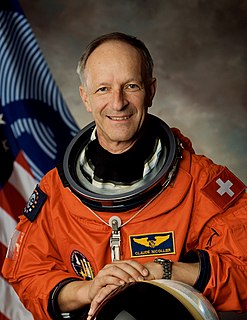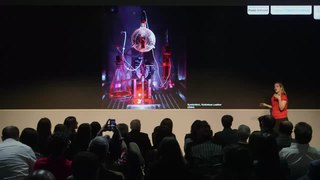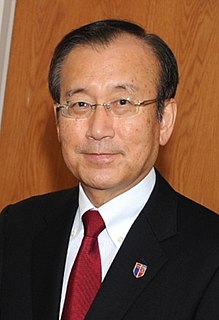A Quote by Jason Silva
We have all kinds of limitations as human beings. I mean we can't see the whole electromagnetic spectrum, we can't see the very small, we can't see the very far. So we compensate for these short comings with technological scaffoldings. The microscope allows us to extend our vision into the microsphere. The telescope allows us to extend our vision into the macrosphere, the Hubble Space Telescope extends our optic nerve into space, and it allows us to mainline space and time through our optic nerve.
Related Quotes
We have all kinds of limitations as human beings. I mean we can't see the whole electromagnetic spectrum; we can't see the very small; we can't see the very far. So we compensate for these short comings with technological scaffoldings. The microscope allows us to extend our vision into the micro-sphere.
In arriving at the relevant theory about the specifics of our faculty of vision we will presumably use our eyes to gather relevant data. Based on such data we come to know about the optic nerve, the structure of our eyes, the rods and cones, etc., so as to explain how it is that vision gives us reliable access to the shapes and colors of objects around us. In reliably arriving at that theory we thus exercise the very faculty whose reliability is explained by the theory. There is no vice in this sort of circularity.
During this period (of technological confinement / [and language]) the human mind has been placed in its narrowest confines it has experienced since consciousness emerged from its Paleolithic phase. Even the most primitive tribes have a larger vision of the universe, of our place and functioning within it, a vision that extends to celestial regions of space and to interior depths of the human in a manner far exceeding the parameters of our world of technological confinement.
Film as dream, film as music. No form of art goes beyond ordinary consciousness as film does, straight to our emotions, deep into the twilight room of the soul. A little twitch in our optic nerve, a shock effect: twenty-four illuminated frames a second, darkness in between, the optic nerve incapable of registering darkness.
In our fibre-optic world of tweets and tablets, we are more conscious of the world around us. The technicolour violence and humanitarian abuses of today are just a flick of a switch away. In our homes, on the train, in our coffee shops, we see it, we feel it, we know about it. All of us. All of the time. Human suffering is visible, constantly.
We cannot and must not allow ourselves to have the message of Hiroshima and Nagasaki fade completely from our minds, and we cannot allow our vision or ideals to fade, either. For if we do, we have but one course left for us. And that flash of light will not only rob us of our vision, but it will rob us of our lives, our progeny, and our very existence.
Social media puts us inside our phones and our computers and our headphones, and we're not connecting so much with our outside environment. Even when people go to the Grand Canyon they're more concerned about the selfies than actually looking at the canyon. I see it with my own kids - the addiction to needing things fast, never pausing to just see what's around us and connect with our fellow human beings in real time.



































